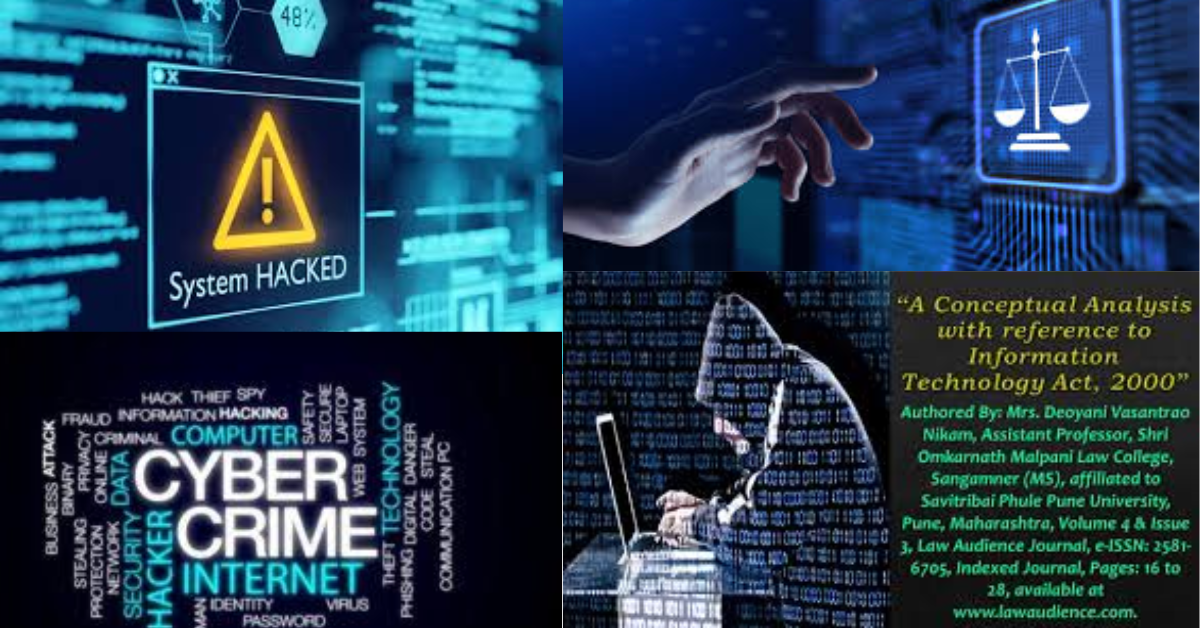The rise of digital transactions, online businesses, and cloud computing has made cybersecurity a top priority. In India, cybersecurity laws are primarily governed by the Information Technology (IT) Act, 2000, along with various amendments and regulations to address modern cyber threats.
This blog will cover the IT Act, its key provisions, recent amendments, penalties for cybercrimes, and how individuals and businesses can ensure compliance.
What is the IT Act, 2000?
The Information Technology Act, 2000, was enacted to provide legal recognition to electronic transactions and prevent cybercrimes. Over the years, it has been amended to address evolving threats such as data breaches, hacking, and identity theft.
Key Objectives of the IT Act:
- Legal recognition of electronic documents and signatures
- Preventing cyber fraud and data theft
- Defining punishments for cybercrimes
- Regulating e-commerce and digital transactions
- Protecting user privacy and data security
Key Provisions of the IT Act
1. Cybercrime & Penalties
The IT Act defines various cyber offenses and their penalties, including:
- Hacking (Section 66): Unauthorized access to computer systems can lead to up to 3 years in prison and a fine.
- Identity Theft (Section 66C): Impersonating someone online can lead to imprisonment up to 3 years and a fine.
- Cyber Terrorism (Section 66F): Any act that threatens national security using digital means can lead to life imprisonment.
- Publishing Obscene Content (Section 67): Sharing explicit content online can result in up to 5 years in jail.
2. Data Protection & Privacy
With rising concerns over personal data leaks, the IT Act and its amendments have introduced stricter data protection measures:
- Section 72A: Unauthorized disclosure of personal data without consent is punishable with up to 3 years of imprisonment.
- Sensitive Personal Data Rules (SPDI Rules, 2011): Companies must take adequate security measures to protect personal data.
- Intermediary Guidelines (2021): Social media platforms and online businesses must ensure user data privacy and prevent misuse.
3. Digital Signatures & Electronic Governance
- The IT Act legally recognizes electronic contracts and digital signatures.
- Government agencies must provide secure online services to citizens.
Recent Amendments to the IT Act
1. IT (Amendment) Act, 2008
This amendment introduced stricter penalties for cybercrimes and expanded definitions of offenses.
2. Data Protection Bill, 2023
Though not part of the IT Act, this bill focuses on user data privacy, restricting companies from misusing personal data.
3. Intermediary Guidelines, 2021
- Social media platforms must track and remove illegal content.
- OTT platforms and digital news publishers must comply with content moderation policies.
Compliance for Businesses & Individuals
For Businesses:
✅ Implement cybersecurity measures like firewalls and encryption
✅ Follow data protection laws when collecting customer information
✅ Regularly audit IT systems for vulnerabilities
✅ Ensure employees follow cyber hygiene practices
For Individuals:
✅ Use strong passwords and enable two-factor authentication
✅ Be cautious of phishing emails and scams
✅ Avoid sharing personal data on unsecured websites
✅ Report cybercrimes through the Cyber Crime Portal (cybercrime.gov.in)
Challenges in Cybersecurity Law Enforcement
Despite strong laws, cybercrime cases are rising due to:
- Lack of awareness among citizens and businesses
- Rapid evolution of hacking techniques
- Difficulty in tracking cross-border cybercrimes
- Limited cybersecurity infrastructure in law enforcement agencies
Conclusion
India’s cybersecurity laws, led by the IT Act, 2000, play a crucial role in protecting individuals and businesses from cyber threats. However, with increasing cyber risks, constant updates, stronger implementation, and public awareness are necessary to build a safe digital ecosystem.
If you’re an internet user, understanding these laws helps protect your online identity and ensures you stay compliant with the latest regulations.

